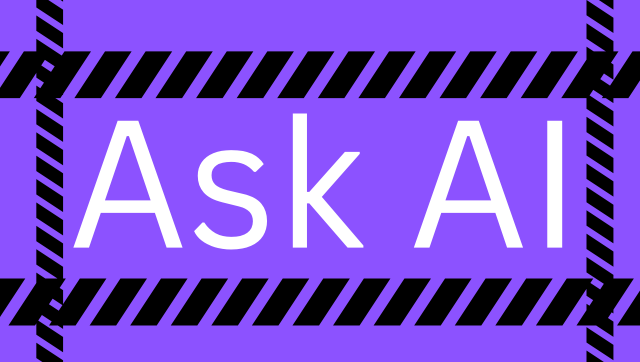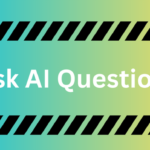Technology has transformed the way we seek information. Gone are the days of flipping through books or searching multiple websites for answers. With the rise of Ask AI platforms, getting instant and accurate responses has never been easier. AI-powered systems like ChatGPT, Google Assistant, and Siri use advanced algorithms to understand and respond to user queries in real time.
But how does Ask AI work, and what does the future hold for AI-driven smart assistance? This blog explores the evolution, benefits, challenges, and potential of AI-powered instant answers.
How Ask AI Delivers Instant Answers
AI-driven platforms rely on Natural Language Processing (NLP) and Machine Learning (ML) to process and understand human queries. These technologies allow AI to analyze vast amounts of data and generate relevant responses within seconds.
- NLP enables AI to understand human language just as a person would, allowing it to process context, tone, and intent.
- Machine Learning helps AI improve over time, learning from user interactions to provide better and more accurate answers.
For example, Google’s AI-powered search engine, ChatGPT, and Bing AI all use these technologies to provide instant responses based on real-time data analysis.
The Evolution of AI Assistants
AI-powered assistants have come a long way from simple rule-based chatbots to advanced conversational AI systems.
- Early AI Assistants (2000s): These were limited to basic question-answering and rule-based interactions.
- Smart Assistants (2010s): The introduction of Siri, Google Assistant, and Alexa brought voice recognition and smarter AI-driven responses.
- AI Chatbots (2020s): AI tools like ChatGPT, Jasper AI, and Bard are now capable of holding complex conversations, generating creative content, and even coding.
With ongoing advancements, the future of Ask AI will bring even more intelligent and personalized interactions.
The Role of Ask AI in Smart Assistance
Beyond answering questions, AI plays a crucial role in smart assistance. Ask AI is being integrated into various industries to enhance productivity and convenience:
1. AI in Customer Support
Businesses use AI chatbots to automate customer service, providing instant responses and reducing wait times. Examples include ChatGPT-powered support bots, Zendesk AI, and Drift AI.
2. AI in Smart Homes
AI assistants like Alexa, Google Home, and Apple HomeKit help automate home tasks, from turning off lights to setting reminders.
3. AI in Healthcare
AI-powered virtual assistants like Ada Health and WebMD AI provide quick medical advice and symptom analysis, making healthcare more accessible.
4. AI in Education
Students can now ask AI-powered tutors like Khan Academy AI for help with assignments, making learning more interactive and personalized.
Benefits of Ask AI-Powered Instant Answers
Using AI for instant responses comes with several advantages:
✅ Speed & Efficiency: AI provides answers within seconds, saving time.
✅ 24/7 Availability: Unlike humans, AI assistants never take a break.
✅ Personalization: AI tailors responses based on user history and preferences.
✅ Multilingual Support: AI can translate and process queries in multiple languages.
For instance, Google’s AI Search and ChatGPT have drastically reduced the time required to gather information.
Challenges and Ethical Concerns of Ask AI
While Ask AI brings convenience, it also raises some concerns:
🚨 Misinformation Risks – AI-generated answers may sometimes be incorrect or biased.
🔒 Privacy Issues – AI assistants collect user data, leading to concerns about security.
⚠️ Overdependence on AI – Relying too much on AI could reduce critical thinking and problem-solving skills.
For example, deepfake technology and AI-generated news have created concerns about misinformation. Companies must focus on responsible AI development to prevent misuse.
The Future of AI-Powered Answers
AI will continue to evolve, making Ask AI smarter and more intuitive. Some key trends expected in the next few years include:
- AI-powered search engines replacing traditional Google searches.
- Conversational AI becoming more human-like in tone and reasoning.
- Integration with AR/VR for AI-driven virtual assistants.
- AI assisting in professional decision-making for businesses and healthcare.
With AI becoming more sophisticated, the future of Ask AI is set to redefine how we interact with technology in daily life.
Conclusion
The rise of Ask AI has changed the way we access information, making it faster, smarter, and more personalized. Whether it’s answering questions, automating tasks, or providing expert insights, AI is becoming an essential part of our digital world.
However, it’s crucial to use AI responsibly, ensuring accuracy, ethical development, and data privacy. As AI technology continues to advance, embracing its potential while being aware of its risks will be the key to a smarter future.




